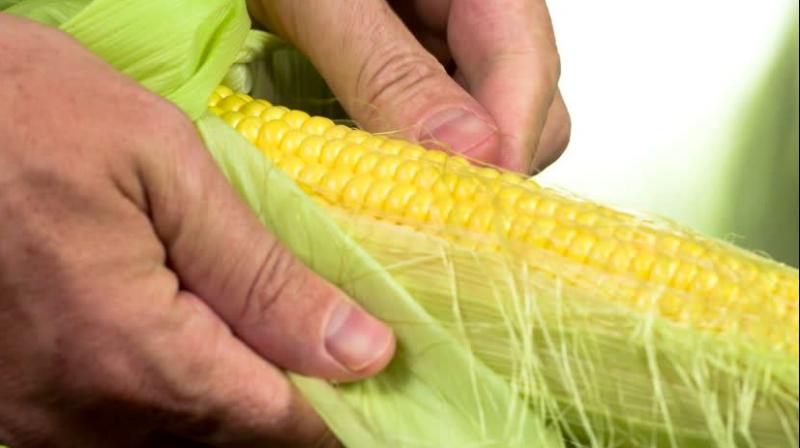Sugar, salt can help generate cheap fuel
IIT-H researchers say corncobs can help produce biofuels.

Hyderabad: Corncob waste can be utilised to generate biofuel, according to a recent research carried out by IIT Hyderabad and published in the technical journal ACS Sustainable Chemistry and Engineering.
The researchers used sugar and salt to produce nano carbon catalyst for production of biofuel precursors. The researchers were looking for a cheap and efficient catalyst which can enable this conversion.
Once it fructifies, it would provide an additional earning opportunity for corn farmers and reduce the carbon footprint in automobile and aviation industries.
Dr Atul Suresh Deshpande, assistant professor, department of materials science and metallurgical engineering, IIT Hyderabad, said biofuels can be produced by a reaction between two chemicals, furfural and 2-methylfuran, derived from corncob. It requires catalysts, such as activated carbon which often require heat of more than 1,000$baC. This increases the cost of the catalyst and negates the attempts to carbon-neutrality.
“The IIT-Hyderabad team has developed a process that can produce carbon catalysts at room temperature using simple materials like sugar, sulfuric acid and salt,” Dr Deshpande said.
The dehydration of sugar by concentrated sulphuric acid is high-school chemistry and the reaction releases intense heat. This helps turn sugar into carbon without external heating. But this process is not well controlled. In order to control the microstructure of carbon, researchers added common salt. Salt helps in controlled dehydration of sugar. Dr Sunil Kumar Maity, another researcher, said, “Due to the low cost of precursors with practically zero energy input and simplicity of reaction, this process of producing carbons nanoplates can be easily adapted for large-scale commercial production.”
Other research students, D. Damodar, K Alekhya and Dr V Mohan were also a part of the team.

